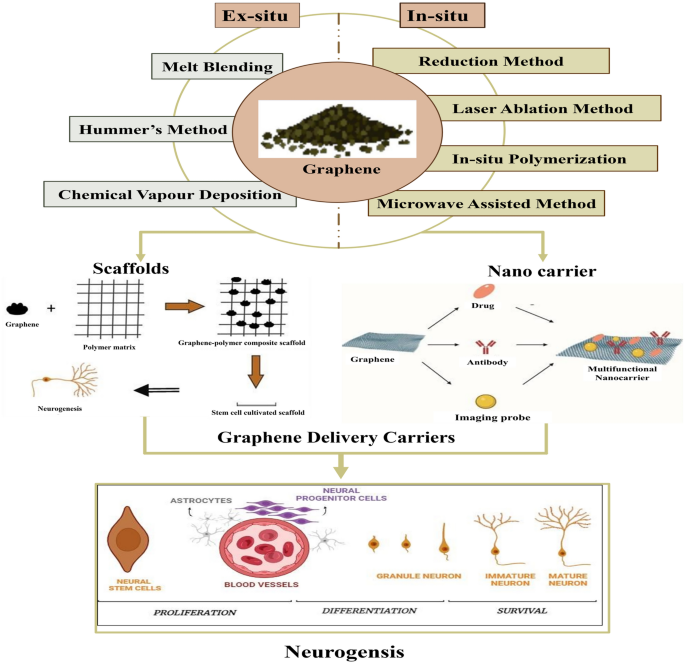Graphene-based
nanocomposites possess excellent conductivity of electrons, robustness,
and longevity, making them potential instruments for enhancing
neurogenesis. Graphene Nanocomposite has several biomedical uses due to
its biocompatibility, size, chemical impermeability, antibacterial
properties, and drug delivery. Their properties, uses in
neuroregeneration, and methods of synthesis are discussed in this
overview. Focusing on adult neurogenesis phases such as proliferation,
differentiation, migration, and integration, this study delves into
neurogenesis which is an essential process for brain development,
plasticity, and learning. The nanocomposites made of graphene have
several applications, including stimulating neurogenesis and treating
neurological diseases. To maximize their use in neuroregeneration and
medication delivery systems, future studies should find ways to address
problems with toxicity and functionalization. This review emphasizes the
intriguing prospects of nanocomposites made of graphene for application
in neurogenesis. Neuronal evolution and accurate drug delivery systems
are two arenas where experts endeavor to enhance their compatibility and
strength.
Graphical Abstract

No comments:
Post a Comment